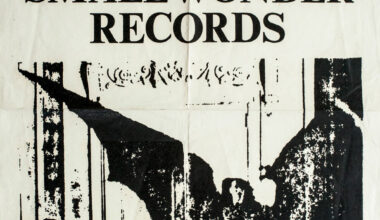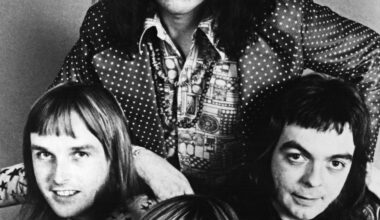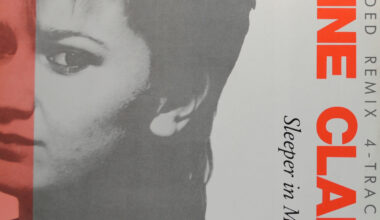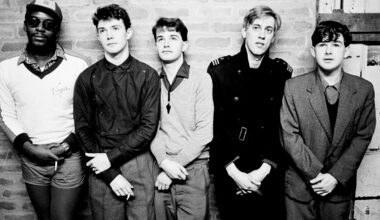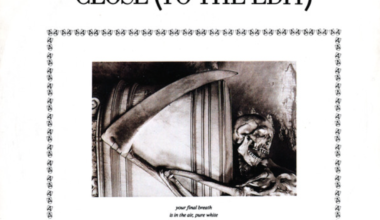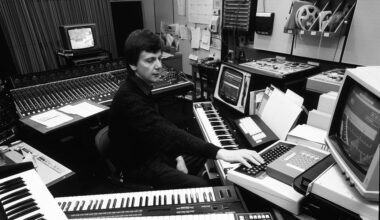Where to start when picking a classic Cabs’ track? Founding member Stephen Mallinder gamely takes on our suggestion of the band’s 1979 single – and it’s quite a tale
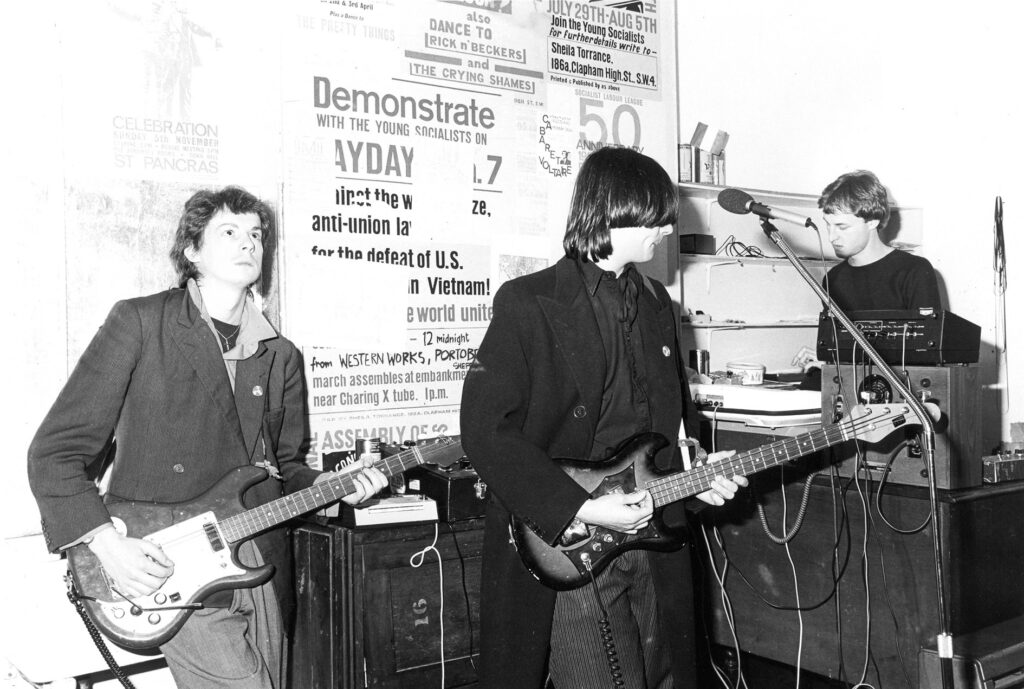
People get strangely partisan about the Cabs. Some like the early period, when we were messing around with the experimental stuff, or they like the Rough Trade releases, while others prefer the electro-ish tracks. We did go through different periods, but ‘Nag Nag Nag’ is quite specific because we never really did anything else like that.
We’d released the ‘Extended Play’ EP for Rough Trade and then the ‘Factory Sample’ record. It was a lovely cavalier time, it was just, “We really like what you’re doing, we’d like to put your record out”. After the Factory release, Tony [Wilson] decided he wanted to do an album with Joy Division, so we went with Rough Trade. Obviously, history tells us different things about those labels, but it would have been interesting if it had gone the other way. They were both great options for us, though, so we were very happy to go with Geoff [Travis] and Rough Trade.
When we did ‘Extended Play’, we just had the ReVox, the B77, so constructing music was literally done on a two-track. What Rough Trade allowed us to do was buy a Tascam four-track, which meant we could do the ‘Mix Up’ album. It was, “If you can buy us a four-track, we can do an album”, so signing to them was a no-brainer in that sense.
The thing with ‘Nag Nag Nag’, and this might break the myth for some people, is that a lot of it was driven by the fact that one of the tracks on ‘Mix Up’ was a cover of ‘No Escape’ by The Seeds. We were obviously listening to a lot of electronic and avant garde music, like Can and the early Kraftwerk, but we were also listening to a lot of American 60s garage records, people like The 13th Floor Elevators and Red Krayola, as well as the ‘Pebbles’ and the ‘Nuggets’ compilations coming out of the States in the late 70s.
We were also big fans of the first two Roxy Music albums and one of the things that Bryan Ferry said was they never took singles off albums. We liked that philosophy, so we adopted it. When we came to do a single for ‘Mix Up’, we wanted to do our own song with that garagey sort of feel. So ‘Nag Nag Nag’ was a one-off. We just sort of twisted that 60s psyche rock thing into a northern electro version of it. It was our homage to that period.
‘Nag Nag Nag’ was recorded in London in a studio on Berry Street, off Clarkenwell Road towards The Barbican. Up until then, we’d recorded everything at our Western Works studio in Sheffield and this was the first time we’d ever really been into another studio. It was a bit of an eye opener. Mayo Thompson from Red Krayola had just come over from the States and was working with Rough Trade on Scritti Politti and The Raincoats around that period, so Geoff and Mayo went, “Well, let’s do a single, we’ll record it”. So we sort of did it for the experience. And obviously with Mayo Thompson’s history with Red Krayola it was, “Oh wow, we’re actually making that connection with that 60s psychedelic garage thing”.
If I can remember correctly, the drum machine might have been a Salmo. It had a variable drum roll that you could pull in with a little switch. Drum machines at the time all seemed to have a bossa nova setting, that’s why a lot of early records featuring a drum machine have that strange swing to them, because they’re based around the old home organ principle that everybody wants to do a polka. I don’t know what the bpm was, but I know it was fast.
The vocals were pretty loud and distorted, but they were still decipherable. There was a part of us that didn’t want to compromise, we had a particular sound and we just wanted to shape that into a regular pop song, but in a warped way. You find out how people relate to your music and that verse-chorus-verse-chorus bit of a middle eight is a proven formula, but it’s what you do with it that’s the interesting thing. The Flying Lizards’ version of ‘Money’, for instance, is a pop song but it’s twisted. Devo made twisted pop songs too.
The lyrics of ‘Nag Nag Nag’ are rather Burroughs-ish. I’ve always been loath to tell people, “This is a song about this”, but it was crafted. The lyrics had a meaning to me, but I would never force that on other people. It spoils the fun of music if someone goes, “This is about this”, and you go, “Oh, that’s a blow, I thought it was about something else”, but the song is about us and the people around us at the time. It was a rather edgy period and it’s about what we were going through, so “15 minute pharaohs / Happy now / Golden hands then back below” is just that idea of short bursts of fame and infamy that were happening to people at that moment, which I thought was… Actually, I’ve just interpreted it, having said that I wouldn’t.
All we really knew about how the record was received was that it sold pretty well. You weren’t sure who your audience was until you turned up and did a gig, so the only barometer you had of anything you released was via the three weekly music papers – Sounds, Melody Maker and NME. I know it got slagged off in the NME. I’ve got a feeling it might have been Danny Baker who reviewed it. I’ve got a vague memory of him saying something about him throwing it in the bin and it was still shouting “Nag Nag Nag” at him. But I may have made that up… And it may not have even been Danny Baker.
I do understand why people like ‘Nag Nag Nag’. I think it caught the zeitgeist. It has a massive attitude, which I really love. As a band, you see yourself as a spectrum of ideas and sounds and how those come into being, so it was quite good to go, “We can write a weird pop song if we want”. It also makes a bit of sense of the other things we were doing. It makes the weirder stuff sound more sensible. There is some sense in going, “We’ll give you something that you can relate to and if you unpack that, then there’s loads of different ideas to have a look at. We’ll make you laugh, we’ll make you dance, and we’ll freak you out as well”.
I think we’re fortunate in that, even though ‘Nag Nag Nag’ is often picked out as the classic Cabaret Voltaire track, we’re known for a lot of other things as well. It’s nice to have different facets about what you do. I don’t think everything should all be one dimensional.
